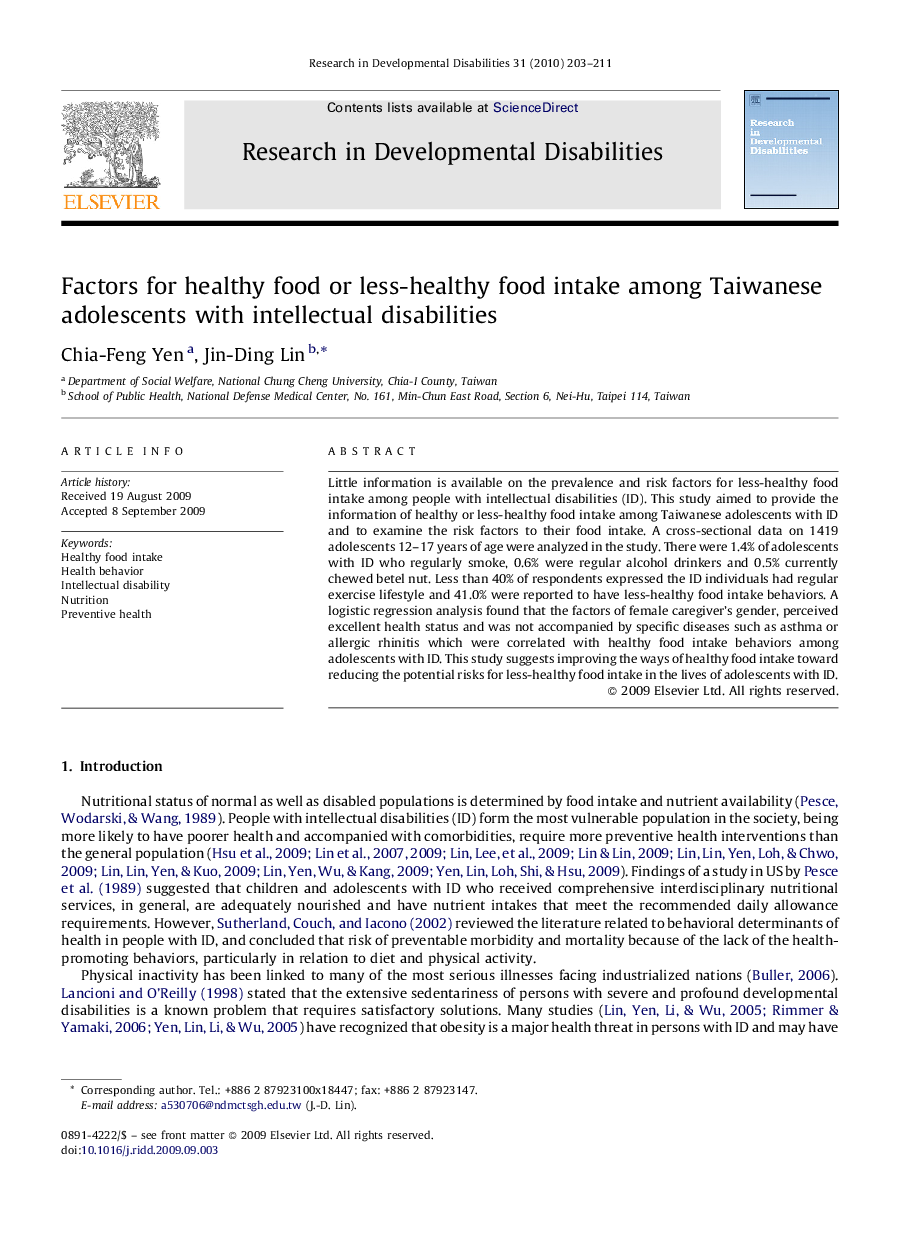| Article ID | Journal | Published Year | Pages | File Type |
|---|---|---|---|---|
| 371941 | Research in Developmental Disabilities | 2010 | 9 Pages |
Little information is available on the prevalence and risk factors for less-healthy food intake among people with intellectual disabilities (ID). This study aimed to provide the information of healthy or less-healthy food intake among Taiwanese adolescents with ID and to examine the risk factors to their food intake. A cross-sectional data on 1419 adolescents 12–17 years of age were analyzed in the study. There were 1.4% of adolescents with ID who regularly smoke, 0.6% were regular alcohol drinkers and 0.5% currently chewed betel nut. Less than 40% of respondents expressed the ID individuals had regular exercise lifestyle and 41.0% were reported to have less-healthy food intake behaviors. A logistic regression analysis found that the factors of female caregiver's gender, perceived excellent health status and was not accompanied by specific diseases such as asthma or allergic rhinitis which were correlated with healthy food intake behaviors among adolescents with ID. This study suggests improving the ways of healthy food intake toward reducing the potential risks for less-healthy food intake in the lives of adolescents with ID.
